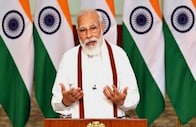India should talk about having 1,000 insurance firms now, Tapan Singhel, MD and CEO at Bajaj Allianz General Insurance told CNBC-TV18.com in an exclusive interview. Singhel was referring to the Insurance Regulatory and Development Authority of India (IRDAI) Chairman Debashish Panda's recent statement that the regulator is in the process of evaluating close to 20 applications for licences from prospective insurance companies.
While Singhel appreciated the move and said that this will benefit both the industry and customers, he added that India needs to expand further.
"Currently, India has close to 50-60 insurance firms, while the United States might have close to 6,000 companies. Taiwan may have 300-400 firms. So, India should fundamentally have 1,000 firms," Singhel said.
Notably, India is the fifth largest economy, but the 15th largest in the general insurance business.
On insurance penetration, he said that it is critical for every Indian to be covered.
"As of now, there are many leaking buckets which leads to slower economic growth. More than 10 crore people are below the poverty line due to health diseases. This costs the country's GDP. If we look at the developed countries,
insurance penetration is very high. For example, the US may have 95percent home insurance while India only has 1 percent," he further said.
Singhel stressed that insurance penetration is required and the government's role is vital.
"People need to understand that the cost of insurance is low as compared to the risk covered. However, we will be much higher from where we are today in the next 8-10 years," he added.
The Economic Survey 2022-23 has recently acknowledged the growth of India's insurance sector but said that most policyholders in India buy only savings-linked products, instead of protection-based ones. IRDAI data showed that India’s insurance penetration was 4.2 percent of the GDP in 2021-22.
During 2022, there were a number of announcements by the regulator aimed at further driving insurance penetration, enhancing customer centricity and leveraging the growing digitalisation of the industry.
Last year, the regulator urged insurance companies to open e-insurance accounts (eIA) for customers which would act as the first step towards the dematerialisation of insurance policies. IRDAI asked firms to dematerialise new insurance policies by December 2022 and existing/old policies by December 2023.
Dematerialisation means converting a physical policy document into a modifiable online object. It means that a person will no longer need to indulge in paperwork at the time of renewing the policy. It is aimed at reducing transaction costs and also ensuring swift modifications in policies.
Additionally, the regulator proposed the setting up of Bima Sugam, a digital portal which integrates the entire insurance ecosystem — insurance repositories, companies, intermediaries, customers and broker associations — on one platform.
The regulator also talked about a composite licence for insurers, which would allow a life insurance company to sell non-life products and vice versa.
On composite licence, Singhel said that is a part of the ease of doing business.
The other amendments include permitting the agents of an insurance company to offer other financial products to customers, removing the minimum capital requirement for setting up a new insurer in the country and allowing a life insurer to sell indemnity health products.
Apart from these, the General Insurance Council (GIC) is also taking steps towards streamlining the empanelment process for hospitals to increase the share of cashless claims in health insurance.
These initiatives, Singel believes, will benefit the industry.
For increasing the growth further, he added that education can play a vital role. Institutions should have curriculums so that students understand it from the very beginning, he said.
On customer-specific products, Singhel said that they are in a constant endeavour to streamline products.
"Currently, growth is there but there is some gap in India. We are doing a great job and the country is doing well too. In the next few years, the sector will definitely grow," he said.






